What to Avoid During Pregnancy
August 25, 2025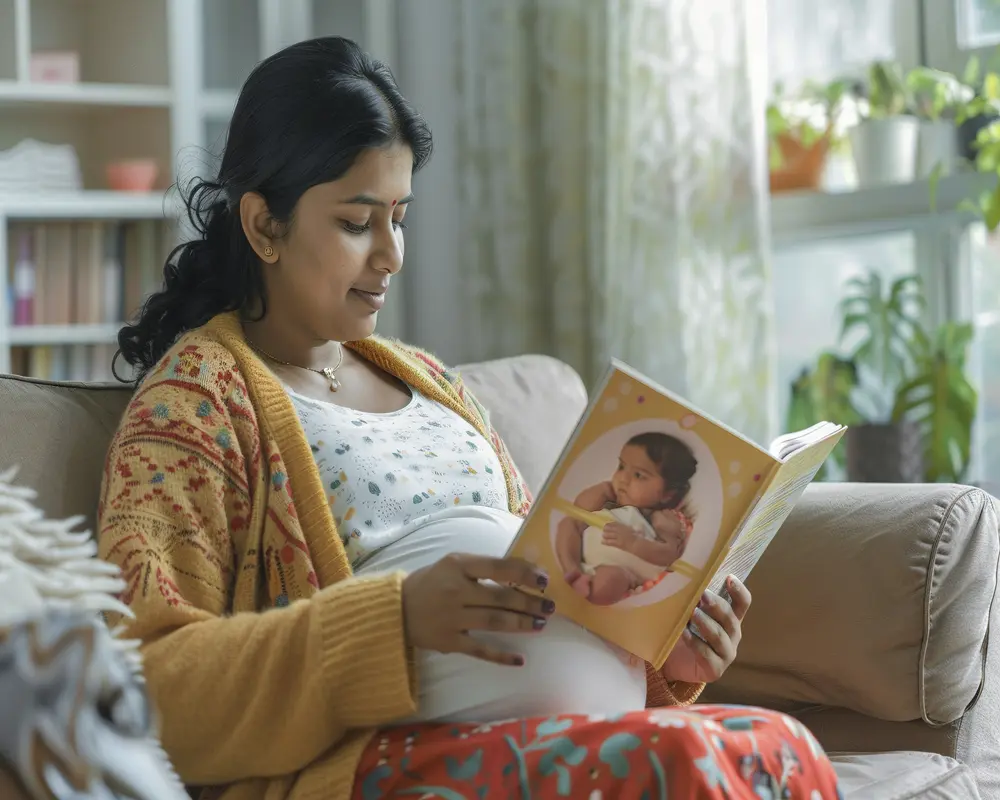
Pregnancy brings joy and immense change, both physically and emotionally. With so much happening, protecting your health and supporting your baby’s development requires making mindful choices every day. Since certain foods, habits, and substances can be harmful, knowing what to avoid during pregnancy is essential.
9 Key Things to Avoid During Pregnancy
High-Risk Exercises and Activities
You may have heard from doctors and well-wishers that staying active during pregnancy benefits both your health and your baby’s development. Regular exercise for 45-60 minutes can help:
- Manage weight gain
- Reduce back pain and other discomforts
- Strengthen pelvic floor muscles
- Improve sleep and mood
- Reduce stress or anxiety
- Increase energy levels
- Support circulation and cardiovascular health
- Lower the risk of pregnancy complications (such as gestational diabetes and preeclampsia)
- Enhance flexibility, balance, and overall strength
If you’re new to exercising, start gradually and choose an activity level that feels comfortable. Consistent, moderate exercise is safer and more effective than occasional intense workouts.
Certain exercises and activities carry higher risks and should be avoided:
- Sports or activities with a risk of falling, collision, or heavy contact, such as soccer, basketball, or martial arts.
- High-impact or repetitive movements that put stress on your joints, like jumping or intense aerobics.
- Exercises in hot environments, including hot yoga or hydrotherapy pools.
- Activities involving heavy equipment, such as weightlifting, skiing, or scuba diving.
Safer alternatives include walking, gentle swimming, stationary cycling, prenatal yoga, and light strength training using bodyweight or resistance bands. These options help you stay active while minimising risks to both you and your baby.
Always consult your doctor before starting or changing your routine to ensure it’s safe for you.
Foods to Limit or Avoid
Just as with certain exercises and activities, some food choices during pregnancy can increase the risk of infections or expose you to harmful substances. Though rare, these risks can have serious consequences for your baby’s health and development.
Here are the foods you should limit or avoid during pregnancy:
High-Mercury Fish:
Mercury can affect the nervous system, kidneys, and immune system, and may cause developmental problems in children. Examples include shark, swordfish, king mackerel, and some types of tuna.
Raw or Undercooked Meat and Fish:
These can carry bacteria or parasites that increase the risk of dehydration, foodborne illness, preterm delivery, pregnancy loss, stillbirth, and other complications.
Processed and Deli Meats:
Items like hot dogs, lunch meats, pepperoni, and salami can be high in sodium and unhealthy fats, and may also harbour bacteria such as Listeria unless reheated thoroughly.
Raw Eggs:
These may contain Salmonella, which can cause fever, nausea, diarrhoea, and uterine cramps that could trigger preterm labour or, in rare cases, stillbirth.
Organ Meats:
Liver and other organ meats are among the things to avoid during pregnancy that can cause miscarriage. They contain high levels of vitamin A (retinol), and excessive intake, especially in the first trimester, may increase the risk of miscarriage and birth defects.
READ: The Role of Vitamin C in a Healthy Pregnancy
Raw Sprouts:
Sprouts such as clover, radish, and mung bean often grow in warm, moist environments that encourage bacterial growth, particularly Salmonella. Washing them usually does not remove the risk.
Unpasteurised Dairy Products:
Raw milk, soft cheeses like feta, brie, camembert, and certain blue cheeses can contain Listeria or other harmful bacteria, which may cause severe illness or pregnancy loss.
Highly Processed Foods:
Packaged snacks, fast food, and sugary drinks are typically low in nutrients and high in calories, sugar, and unhealthy fats, which can contribute to excessive weight gain and gestational diabetes.
Unwashed Fruits and Vegetables:
Soil residue may carry bacteria or parasites such as Toxoplasma, E. coli, Salmonella, and Listeria. These infections can cross the placenta, potentially causing vision problems, brain damage, or developmental delays in the baby.
Contaminated or Untreated Water:
Drinking water that is not clean may contain bacteria, parasites, or heavy metals, which can cause illness and endanger your baby’s health.
Caffeine Intake During Pregnancy
Tea, coffee, soft drinks, energy drinks, and even cocoa all contain caffeine. Research has shown that consuming large amounts of caffeine during pregnancy is linked to:
- Miscarriage
- Restricted fetal growth
- Low birth weight
- Long-term risks for the child, such as learning difficulties and obesity
To reduce these risks, the American College of Obstetricians and Gynecologists (ACOG) advises limiting caffeine intake to no more than 200 milligrams (mg) per day.
It’s also important to remember that caffeine can be hidden in foods and drinks such as chocolate, certain medications, and some over-the-counter pain relievers. Keeping track of all sources of caffeine can help you stay within the recommended limit and protect your baby’s health.
Dieting and Extreme Weight-Loss Practices
Dieting is something you should avoid during pregnancy. While managing weight matters, excluding entire food groups can prevent your baby from getting the essential nutrients needed for healthy growth and development.
Instead, aim for a balanced diet with a wide variety of foods from all the main food groups. Including fruits, vegetables, whole grains, protein sources, and healthy fats will support both your health and your baby’s needs throughout pregnancy.
Alcohol and Smoking
There is no safe level of alcohol consumption or smoking when you are planning a pregnancy or are pregnant. In simple terms, you should completely avoid drinking or smoking during this time.
Alcohol use in pregnancy increases the risk of miscarriage, stillbirth, and fetal alcohol syndrome, a condition that can affect your baby’s brain, heart, and overall development. Smoking also raises the risk of miscarriage, premature birth, stillbirth, and other serious pregnancy complications.
If you find it difficult to quit, talk to your doctor for support and guidance. Professional help and resources are available to make the process easier and safer for both you and your baby.
Self-Care and Beauty Treatments to Be Cautious With
Self-care and beauty treatments can feel uplifting during pregnancy, but some require caution. Chemicals, increased skin sensitivity, or other risks may make certain options unsafe. Being aware of these helps you stay safe while still enjoying gentle pampering.
Fake Spray Tans:
Fake spray tans should be avoided during pregnancy, as the effects of inhaling the mist are not well understood. Even though clear risks have not been proven, they may trigger allergic reactions, especially since hormonal changes can make your skin more sensitive.
If you choose to use tanning products, always perform a patch test first. When working with spray tans, wear protective gear such as a mask or nose plugs.
Creams and lotions for fake tanning are generally considered safe during pregnancy.
READ: - Changes to Expect in Your Body During Pregnancy
Saunas and Hot Tubs:
Another thing to avoid during pregnancy is heated facilities, such as saunas, hot tubs, and steam rooms. These can raise your core body temperature, which may lead to:
- Dehydration
- Fainting
- Possible harm to your baby (especially in the first trimester)
Since pregnancy hormones already make you feel warmer, overheating adds extra strain and reduces blood flow to vital organs.
Sun Lounges:
Sun lounges are common at beaches and pools, but they expose you to ultraviolet (UV) rays that can break down folic acid, a nutrient essential for your baby’s development. Pregnancy also makes your skin more sensitive, which increases the risk of burns. For these reasons, it’s best to avoid sun lounges altogether.
READ: Essential Nutrition for a Healthy Pregnancy (Day by Day).
Hair Dyes:
Hair dye is generally considered safe during pregnancy, and only a minute amount is absorbed through the scalp, which is unlikely to harm your baby. If you want to be extra cautious, you can:
- Wait until after the first trimester
- Wear gloves to reduce skin contact
- Keep the dye on for the minimum recommended time
- Rinse your hair thoroughly afterwards
You may also choose natural or vegetable-based dyes. Always do a strand test first, as pregnancy can alter how your hair reacts to treatments.
Complementary and Alternative Therapies
Not all complementary therapies are safe during pregnancy. When done without proper guidance, some may trigger uterine contractions, bleeding, allergic reactions (due to increased skin sensitivity), or even affect fetal development. Examples include:
- Herbal remedies
- Certain essential oils
- Strong aromatherapy
- Acupuncture or massage from unqualified practitioners
Always consult your doctor before trying any complementary or alternative therapy during pregnancy.
Potential Home Hazards
Some household items are on the list of things that can cause a miscarriage in the first 8 weeks or affect your baby’s development later on. These can be harmful and should be handled with extra care:
Cleaning Products:
Many common cleaning products contain strong chemicals that can irritate your lungs, trigger nausea, or cause harm with high exposure. To reduce risks, wear gloves, keep the area well-ventilated, avoid breathing in fumes, and whenever possible, use safer home-based alternatives.
Lead-Based Paint:
Lead exposure in pregnancy can harm your baby’s brain, leading to learning and behavioural issues. Many older Indian homes still have lead-based paints, which release toxic dust when disturbed. Choose safer paint options and leave removal or renovation work to trained professionals to protect both mother and baby.
Painting and Decorating:
Fumes from oil-based paints, varnishes, and solvents can be unsafe. While the risk is low, it’s wise to take precautions: use water-based paints, keep windows open, wash your hands, and limit exposure. It’s also best to avoid painting and decorating until after the 12th week of pregnancy.
X-Rays and Radiation During Pregnancy
X-rays release radiation, and the fetus is most vulnerable during the first three months of pregnancy, especially between 2 and 7 weeks when organs are forming. This primarily includes X-rays of the lower torso, such as the abdomen, pelvis, and lower back.
If you are pregnant or planning a pregnancy, always inform your doctor and radiology staff before any X-rays. Safer alternatives, such as ultrasound or MRI, can often be used.
The Bottom Line
Pregnancy is a time to prioritise both your health and your baby’s development. Being mindful of such potentially harmful things can reduce complications. By making informed choices and seeking medical guidance when necessary, you can create a safer, healthier environment for yourself and your growing baby.
If you have any concerns, reach out to expert obstetricians, gynaecologists, and fetal medicine specialists at Apollo Cradle & Children’s Hospital, the best maternity hospital in Hyderabad. We’re here to provide personalised care and guidance, helping you and your baby stay healthy and safe throughout your pregnancy.
Protecting your health and your baby starts with knowing what to avoid during pregnancy. Steer clear of high-risk exercises, raw or processed foods, alcohol and smoking, strong chemicals, heated facilities, and medical procedures involving radiation. Prioritise gentle activity, safe foods, and a healthy environment.
Some medications can harm your developing baby. Avoid non-prescribed drugs, certain painkillers (like aspirin and ibuprofen), specific antibiotics, and herbal supplements unless approved by your doctor. Always seek medical advice before taking any medication.
Intense or high-risk exercises should be avoided. Avoid contact sports, activities with a high risk of falling, intense aerobics, heavy weightlifting, hot yoga, and scuba diving. Instead, choose gentle, low-impact workouts.
During pregnancy, avoid sitting in one position for too long, slouching, or crossing your legs. Sitting on the floor with legs stretched out should also be avoided, as it can put pressure on your abdomen. Take breaks to move and change positions regularly.
Avoid sleeping on your back during pregnancy, especially after the first trimester. It can reduce blood flow, cause back pain, and may affect your baby’s circulation or development. Side-sleeping, ideally on the left, is safest.
Our Doctors

DR. PRAMEELA SEKHAR
MBBS, DGO, DNB...
| Experience | : | 30 Years |
|---|---|---|
| Speciality | : | Obstetrics & Gynecol... | Location | : | Kondapur |
| Timings | : | Mon, Wed, Fri & Sat ... |

DR. MAMATHA BM
MBBS, DGO, DNB (OBGY...
| Experience | : | 29 Years |
|---|---|---|
| Speciality | : | Obstetrics & Gynecol... | Location | : | Koramangala |
| Timings | : | Visiting Consultant... |

DR. JYOTHI RAJESH
MBBS, DGO, DNB...
| Experience | : | 20 Years |
|---|---|---|
| Speciality | : | Obstetrics & Gynecol... | Location | : | Koramangala |
| Timings | : | Mon - 12:00PM -01:00... |

DR. SNEHA NAVEEN
MBBS,DNB...
| Experience | : | 14 Years |
|---|---|---|
| Speciality | : | Obstetrics & Gynecol... | Location | : | Koramangala |
| Timings | : | Visiting Consultant... |

DR. MEENU ARORA
MBBS, DGO, DNB...
| Experience | : | 23 Years |
|---|---|---|
| Speciality | : | Obstetrics & Gynecol... | Location | : | Abadi Court Road |
| Timings | : | Mon, Tue, Wed, Fri &... |

DR. SUNEETHA GUDIPATI
MBBS, MD, MRCOG...
| Experience | : | 15 Years |
|---|---|---|
| Speciality | : | Obstetrics & Gynecol... | Location | : | Kondapur |
| Timings | : | Tue : 9:00 AM to 11:... |
DR. REKHA PRASHANTH
MBBS, MD...
| Experience | : | 27 Years |
|---|---|---|
| Speciality | : | Obstetrics & Gynecol... | Location | : | Koramangala |
| Timings | : | Wed/Sat : 04:00PM - ... |

DR. SHILPA VENKATESH
MBBS,MRCOG...
| Experience | : | 14 Years |
|---|---|---|
| Speciality | : | Obstetrics & Gynecol... | Location | : | Koramangala |
| Timings | : | Visiting Consultant... |

DR. SHOBHA V
MBBS,DGO,ICMCH,MSASM...
| Experience | : | 26 Years |
|---|---|---|
| Speciality | : | Obstetrics & Gynecol... | Location | : | Koramangala |
| Timings | : | Visting Consultant... |

DR. SUDHAMANI M D
MBBS,MD OBG...
| Experience | : | 28 Years |
|---|---|---|
| Speciality | : | Obstetrics & Gynecol... | Location | : | Koramangala |
| Timings | : | Visiting Consultant... |

DR. SUGUNA REDDY
MBBS,DGO...
| Experience | : | 23 Years |
|---|---|---|
| Speciality | : | Obstetrics & Gynecol... | Location | : | Koramangala |
| Timings | : | Mon, Wed & Sat : 5.3... |

DR. RANJITHA G BABU
M.B.B.S., M.S. (OBG)...
| Experience | : | 18 Years |
|---|---|---|
| Speciality | : | Obstetrics & Gynecol... | Location | : | Rajajinagar |
| Timings | : | Mon - Sat : 06:00 PM... |
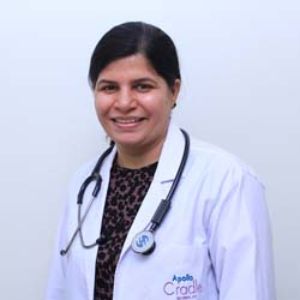
DR. VIMEE BINDRA
MBBS, M.D (Obs & Gyn...
| Experience | : | 7 Years |
|---|---|---|
| Speciality | : | Obstetrics & Gynecol... | Location | : | Jubilee Hills |
| Timings | : | Mon - Sat : On Call... |

DR. SHANTHI REDDY
MBBS, M.D (Obs & Gyn...
| Experience | : | 23 Years |
|---|---|---|
| Speciality | : | Obstetrics & Gynecol... | Location | : | Jubilee Hills |
| Timings | : | Mon - Sat : On Call... |

DR. JASMIN RATH
MD, OBG, SENIOR CONS...
| Experience | : | 16 Years |
|---|---|---|
| Speciality | : | Obstetrics & Gynecol... | Location | : | Jubilee Hills |
| Timings | : | ON CALL... |

DR. JASMIN RATH
MBBS, MD...
| Experience | : | 16 Years |
|---|---|---|
| Speciality | : | Obstetrics & Gynecol... | Location | : | Kondapur |
| Timings | : | Mon - Sat : 09:00 AM... |

DR. SUDHA MADHURI
MBBS, DGO, MRCOG (UK...
| Experience | : | 25 Years |
|---|---|---|
| Speciality | : | Obstetrics & Gynecol... | Location | : | Kondapur |
| Timings | : | Mon, Tue, Wed, Fri &... |

DR. ROOMA SINHA
MBBS, M.D,DNB;MNAMS...
| Experience | : | 22 Years |
|---|---|---|
| Speciality | : | Obstetrics & Gynecol... | Location | : | Jubilee Hills |
| Timings | : | ON CALL... |

DR. NEERA KIRPAL
MBBS, DGO...
| Experience | : | 42 Years |
|---|---|---|
| Speciality | : | Obstetrics & Gynecol... | Location | : | Abadi Court Road |
| Timings | : | Mon - Sat : 11:00 AM... |

DR. SITA SHARMA
MBBS, MD...
| Experience | : | 17 Years |
|---|---|---|
| Speciality | : | Obstetrics & Gynecol... | Location | : | Abadi Court Road |
| Timings | : | Mon - Sat : 12:00 PM... |

DR. SUJATA SHARMA
MBBS, MD, DGO, FICOG...
| Experience | : | 37+ Years |
|---|---|---|
| Speciality | : | Obstetrics & Gynecol... | Location | : | Abadi Court Road |
| Timings | : | Mon - Sat : 10:00 AM... |

DR. PHANI MADHURI
MBBS, MS, Diploma in...
| Experience | : | 11 Years |
|---|---|---|
| Speciality | : | Obstetrics & Gynecol... | Location | : | Koramangala |
| Timings | : | Mon - Sat : 02:00 PM... |

DR. DEEPA DUREJA
MBBS, MD (Obst & Gyn...
| Experience | : | 30 Years |
|---|---|---|
| Speciality | : | Obstetrics & Gynecol... | Location | : | Chirag Enclave |
| Timings | : | Wed : 05:00 PM to 07... |

DR. MANJU AGARWAL
MBBS, DGO, FICOG...
| Experience | : | 25 Years |
|---|---|---|
| Speciality | : | Obstetrics & Gynecol... | Location | : | Moti Nagar |
| Timings | : | Mon & Thur : 05:00 P... |

DR. ANURADHA PANDA
MD, DGO, FICOG...
| Experience | : | 22 Years |
|---|---|---|
| Speciality | : | Obstetrics & Gynecol... | Location | : | Jubilee Hills |
| Timings | : | On Call... |

DR. VANGALLU PADMINI SILPA
DGO DNB MNAMS FMAS...
| Experience | : | 16 Years |
|---|---|---|
| Speciality | : | Obstetrics & Gynecol... | Location | : | Kondapur |
| Timings | : | Mon - Sat : 10:00 AM... |

DR. PRUTHVI B
MBBS, DGO, DNB (OBG)...
| Experience | : | 5 Years |
|---|---|---|
| Speciality | : | Obstetrics & Gynecol... | Location | : | Rajajinagar |
| Timings | : | Mon, Wed, Sat & Sun ... |
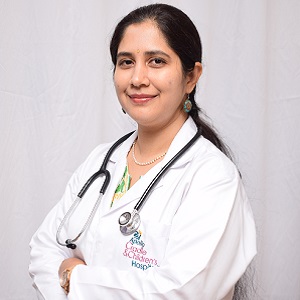
DR. JOSHITHA NAIK
MBBS, DGO, DNB...
| Experience | : | 15 Years |
|---|---|---|
| Speciality | : | Obstetrics & Gynecol... | Location | : | Jayanagar |
| Timings | : | Mon to Sat : 6:00 PM... |

DR. APOORVA PALLEM REDDY
MBBS, MS, DNB...
| Experience | : | 10 Years |
|---|---|---|
| Speciality | : | Obstetrics & Gynecol... | Location | : | Jayanagar |
| Timings | : | Mon, Wed, Fri : 4:00... |
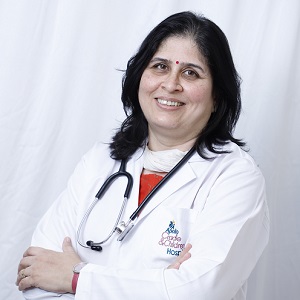
DR. SHILPA S APTE
MBBS, DGO...
| Experience | : | 21 Years |
|---|---|---|
| Speciality | : | Obstetrics & Gynecol... | Location | : | Jayanagar |
| Timings | : | Thu/Sat : 01:00PM - ... |

DR. PADMASRI V
MBBS, MD ...
| Experience | : | 22 Years |
|---|---|---|
| Speciality | : | Obstetrics & Gynecol... | Location | : | Jayanagar |
| Timings | : | Mon - Sat : 03:00PM ... |

DR. (PROF.) CHITRA RAMAMURTHY
MBBS, MD - Obstetric...
| Experience | : | 37 Years |
|---|---|---|
| Speciality | : | Obstetrics & Gynecol... | Location | : | Jayanagar |
| Timings | : | Mon to Sat : On Call... |

DR. SMITA B KALAPPA
MBBS, MS, DNB, MRCOG...
| Experience | : | 5 Years |
|---|---|---|
| Speciality | : | Obstetrics & Gynecol... | Location | : | Jayanagar |
| Timings | : | Mon, Tue, Thur & Fri... |

DR SESHIREKHA DANDAMUDI
MBBS: MD (OBG & GYN)...
| Experience | : | 25 Years |
|---|---|---|
| Speciality | : | Obstetrics & Gynecol... | Location | : | Kondapur |
| Timings | : | Mon - Sat : 10:00 A... |

DR. V. RAMYA KRISHNA
MBBS, MRCOG, PGDMNC,...
| Experience | : | 21 Years |
|---|---|---|
| Speciality | : | Obstetrics & Gynecol... | Location | : | Varthur Clinic |
| Timings | : | Mon, Tue, Thu, Fri, ... |

DR. V. RAMYA KRISHNA
MBBS, MRCOG, PGDMNC,...
| Experience | : | 19 Years |
|---|---|---|
| Speciality | : | Obstetrics & Gynecol... | Location | : | Brookefield |
| Timings | : | Mon - Sat : 6:00 PM ... |
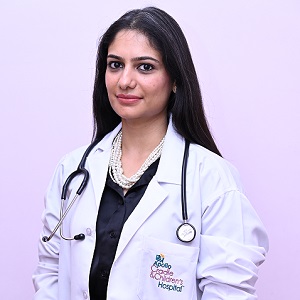
DR. NAMRATA NAGENDRA
MBBS, MS...
| Experience | : | 14+ Years |
|---|---|---|
| Speciality | : | Obstetrics & Gynecol... | Location | : | HSR layout 2nd Sector |
| Timings | : | Mon - Sat : 10:30 AM... |
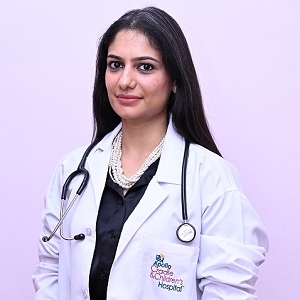
DR. NAMRATA NAGENDRA
MBBS, MS ...
| Experience | : | 15 Years |
|---|---|---|
| Speciality | : | Obstetrics & Gynecol... | Location | : | Koramangala |
| Timings | : | Mon - Sat : 10:30 AM... |

DR. SUGUNA REDDY
MBBS, DGO...
| Experience | : | 23 Years |
|---|---|---|
| Speciality | : | Obstetrics & Gynecol... | Location | : | HSR layout 2nd Sector |
| Timings | : | Mon - Sat: 8:30 PM t... |

DR. MITA VERMA
MBBS - BRD Medical C...
| Experience | : | 32 Years |
|---|---|---|
| Speciality | : | Laparoscopic Surgeon... | Location | : | Chirag Enclave |
| Timings | : | Mon, Tue, Wed & Thur... |

DR. SHAKTIBHAN KHANNA
MBBS, MD, FAMS, FIAM...
| Experience | : | 46 Years |
|---|---|---|
| Speciality | : | Obstetrics & Gynecol... | Location | : | Chirag Enclave |
| Timings | : | Mon - 10:00AM - 12:0... |

DR. RITU
MBBS, MS (Obstetrics...
| Experience | : | 14 Years |
|---|---|---|
| Speciality | : | Obstetrics & Gynecol... | Location | : | Sector-82 |
| Timings | : | Mon to Sat : 12:00 P... |

DR. HARPREET KAUR
MBBS, MS (Obs & Gyna...
| Experience | : | 14 Years |
|---|---|---|
| Speciality | : | Obstetrics & Gynecol... | Location | : | Sector-82 |
| Timings | : | Mon to Sat : 9:00 AM... |

DR. PARGYA RICHA
MBBS, MS( Obs and Gy...
| Experience | : | 14 Years |
|---|---|---|
| Speciality | : | Obstetrics & Gynecol... | Location | : | Sector-14 |
| Timings | : | Mon to Sat : 5:00 PM... |

DR. ANDAL REDDY
DGO, DNB, FICOG, FIC...
| Experience | : | 22 Years |
|---|---|---|
| Speciality | : | Obstetrics & Gynecol... | Location | : | Kondapur |
| Timings | : | Tue & thur : On Call... |

DR. PRAMEELA SEKHAR. K
DGO, DNB (OBG)...
| Experience | : | 17 Years |
|---|---|---|
| Speciality | : | Obstetrics & Gynecol... | Location | : | Jubilee Hills |
| Timings | : | Mon to Sat : 11:30 A... |

DR. ANDAL REDDY
DGO, DNB, FICOG, FIC...
| Experience | : | 22 Years |
|---|---|---|
| Speciality | : | Obstetrics & Gynecol... | Location | : | Jubilee Hills |
| Timings | : | Mon - Sat : 10:00 AM... |

DR. SWATHI GOGINENI
MBBS, MS (OBG), DNB ...
| Experience | : | 16 Years |
|---|---|---|
| Speciality | : | Obstetrics & Gynecol... | Location | : | Jubilee Hills |
| Timings | : | Mon - Sat : 10:00 AM... |

DR. MYTHRI SHARAN
MBBS, DGO, DNB ...
| Experience | : | 8 Years |
|---|---|---|
| Speciality | : | Obstetrics & Gynecol... | Location | : | Jubilee Hills |
| Timings | : | Mon - Sat : 10:30 AM... |
DR. SRI HARIKA BONAM
MBBS, MS (OBG) DNB, ...
| Experience | : | 16 Years |
|---|---|---|
| Speciality | : | Obstetrics & Gynecol... | Location | : | Jubilee Hills |
| Timings | : | Mon - Sat : 11:00 AM... |
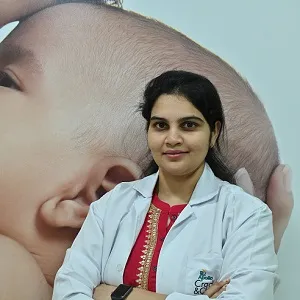
DR. SOWMYA SAMPURNA .M
MBBS, MS (OBG) FMAS...
| Experience | : | 9 Years |
|---|---|---|
| Speciality | : | Obstetrics & Gynecol... | Location | : | Jubilee Hills |
| Timings | : | Mon - Sat : 5:00 PM ... |

DR. MADHUMATHI SANJAY
MD...
| Experience | : | 29 Years |
|---|---|---|
| Speciality | : | Obstetrics & Gynecol... | Location | : | Jubilee Hills |
| Timings | : | Tue, Thur & Sat : 11... |

DR. SUNITHA ILINANI
MBBS, MD (OBG)...
| Experience | : | 23 Years |
|---|---|---|
| Speciality | : | Obstetrics & Gynecol... | Location | : | Jubilee Hills |
| Timings | : | Mon - Sat : 09:00 AM... |

DR. MEENAKSHI R KAMATH
MBBS, DGO...
| Experience | : | 30 Years |
|---|---|---|
| Speciality | : | Obstetrics & Gynecol... | Location | : | Jayanagar |
| Timings | : | Mon, Wed, Fri & Sat ... |

DR. DIVYA WADHAWAN
MBBS, DNB Obstetrics...
| Experience | : | 14+ Years |
|---|---|---|
| Speciality | : | Obstetrics & Gynecol... | Location | : | Chirag Enclave |
| Timings | : | Mon - Sat : 4:00 PM ... |

DR. MAMTA GOEL
DNB, DGO, MD...
| Experience | : | 17 Years |
|---|---|---|
| Speciality | : | Obstetrics & Gynecol... | Location | : | Chirag Enclave |
| Timings | : | Tue, Thur & Sat : 01... |

DR. SEEMA THERAJA
MBBS, MD (OBG)...
| Experience | : | 28 Years |
|---|---|---|
| Speciality | : | Obstetrics & Gynecol... | Location | : | Moti Nagar |
| Timings | : | Mon & Wed : 10:00 AM... |

DR. POONAM BEHAL
MS (Obs & Gynae), Ma...
| Experience | : | 23 Years |
|---|---|---|
| Speciality | : | Obstetrics & Gynecol... | Location | : | Moti Nagar |
| Timings | : | Mon & Thur : 10:00 A... |

DR. SADHNA GUPTA
MBBS, MD...
| Experience | : | 35 Years |
|---|---|---|
| Speciality | : | Obstetrics & Gynecol... | Location | : | Moti Nagar |
| Timings | : | Tue : 11:00 AM to 12... |

DR. ISHA KHURANA VASHISHT
MBBS, MS - Obstetric...
| Experience | : | 14 Years |
|---|---|---|
| Speciality | : | Obstetrics & Gynecol... | Location | : | Moti Nagar |
| Timings | : | Wed : 4:00 PM to 6:0... |

DR. DEEPTI SOOD HANDA
MBBS, DGO...
| Experience | : | 10 Years |
|---|---|---|
| Speciality | : | Obstetrics & Gynecol... | Location | : | Moti Nagar |
| Timings | : | Mon & Thur : 5:00 PM... |

DR. NITIKA GROVER
MBBS, MS (OBGYN)...
| Experience | : | 8 Years |
|---|---|---|
| Speciality | : | Obstetrics & Gynecol... | Location | : | Moti Nagar |
| Timings | : | Tue : 10:00 AM to 12... |

DR. ANANYA RANGASWAMY
MBBS, MS(OBG), Speci...
| Experience | : | 10 Years |
|---|---|---|
| Speciality | : | Obstetrics & Gynecol... | Location | : | Rajajinagar |
| Timings | : | Mon - Sat : 6:00 PM ... |

PROF. DR. BHARATHI RAJANNA
MBBS, MD(OBG), FMAS,...
| Experience | : | 35 Years |
|---|---|---|
| Speciality | : | Obstetrics & Gynecol... | Location | : | Rajajinagar |
| Timings | : | Mon - Sat : 11:00 AM... |

DR. B M RAMYA THULASI
MBBS, MS(OBG), DGO, ...
| Experience | : | 14 Years |
|---|---|---|
| Speciality | : | Obstetrics & Gynecol... | Location | : | Rajajinagar |
| Timings | : | Mon - Sat : 09:00 AM... |

DR. RASHMI NAIK N
MBBS, DGO, FMAS, DRM...
| Experience | : | 15 Years |
|---|---|---|
| Speciality | : | Obstetrics & Gynecol... | Location | : | Rajajinagar |
| Timings | : | Mon - Sat : 04:00 PM... |

DR. SWETHA R V
MBBS, DNB(OBG)...
| Experience | : | 6 Years |
|---|---|---|
| Speciality | : | Obstetrics & Gynecol... | Location | : | Rajajinagar |
| Timings | : | Mon - Sat : 10:00 AM... |

DR. USHA MURTHY
MBBS, DGO, DNB(OBGYN...
| Experience | : | 10 Years |
|---|---|---|
| Speciality | : | Obstetrics & Gynecol... | Location | : | Rajajinagar |
| Timings | : | Mon - Sat : 2:00 PM ... |

DR. PREETINDER KAUR BEDI
MBBS, MD (OBGYN), DN...
| Experience | : | 22 Years |
|---|---|---|
| Speciality | : | Obstetrics & Gynecol... | Location | : | Moti Nagar |
| Timings | : | Thur : 10:00 AM to 0... |

DR. MONIKA GHULIANI
MBBS, MS...
| Experience | : | 16 Years |
|---|---|---|
| Speciality | : | Obstetrics & Gynecol... | Location | : | Chirag Enclave |
| Timings | : | Tue, Thur & Sat : 5:... |

DR. NANDINI MUPPIDI
MBBS, MS OBGY...
| Experience | : | 10 Years |
|---|---|---|
| Speciality | : | Obstetrics & Gynecol... | Location | : | Kondapur |
| Timings | : | Mon - Sat : 12:00 PM... |

DR. SRI LAKSHMI DURGA MARRIVADA
MBBS, DNB, (OBGY)...
| Experience | : | 5 Years |
|---|---|---|
| Speciality | : | Obstetrics & Gynecol... | Location | : | Kondapur |
| Timings | : | Mon - Sat : 1:00 PM ... |

DR. JNANASHREE DEEPAK
MBBS, MS OBG...
| Experience | : | 20 Years |
|---|---|---|
| Speciality | : | Obstetrics & Gynecol... | Location | : | Rajajinagar |
| Timings | : | Mon - Sat : 9:30 AM ... |

DR. PADMAVATHI P
MBBS, DGO, DNB...
| Experience | : | 8 Years |
|---|---|---|
| Speciality | : | Obstetrics & Gynecol... | Location | : | Kondapur |
| Timings | : | Mon to Sat : 9:00 AM... |

DR. SHASHIKALA HANDE
MBBS,MD,MRCOG(UK)...
| Experience | : | 27 Years |
|---|---|---|
| Speciality | : | Obstetrics & Gynecol... | Location | : | Jayanagar |
| Timings | : | Mon - Sat : 9:00 AM ... |

DR. GAUTHAMI M
MBBS, MS(OBG), FMIS ...
| Experience | : | 7 Years |
|---|---|---|
| Speciality | : | Laparoscopic Surgeon... | Location | : | HSR layout 2nd Sector |
| Timings | : | Tue, Wed & Thurs : 4... |

DR. PHANI MADHURI
MBBS, MS - Obstetric...
| Experience | : | 20 Years |
|---|---|---|
| Speciality | : | Obstetrics & Gynecol... | Location | : | Jayanagar |
| Timings | : | Mon - Sat : 02:30 PM... |

DR. NEELIMA KANTH T
MBBS, MS-Obstetrics ...
| Experience | : | 23+ Years |
|---|---|---|
| Speciality | : | Obstetrics & Gynecol... | Location | : | Jubilee Hills |
| Timings | : | Mon - Sat : 10:00AM ... |

DR. TEENA THOMAS
MBBS, PGDMNC, PGDFM...
| Experience | : | 21 Years |
|---|---|---|
| Speciality | : | Obstetrics & Gynecol... | Location | : | Varthur Clinic |
| Timings | : | Mon, Tue, Thu, Fri, ... |

DR. CHITRA SHANKAR
MBBS, MD, MRCOG DRM ...
| Experience | : | 25 Years |
|---|---|---|
| Speciality | : | Obstetrics & Gynecol... | Location | : | Karapakkam |
| Timings | : | Mon, Wed, Sat : 6:00... |

DR. AYESHA SHARIEF
MBBS,MRCOG...
| Experience | : | 16 Years |
|---|---|---|
| Speciality | : | Obstetrics & Gynecol... | Location | : | Koramangala |
| Timings | : | Visiting Consultant... |

DR. PUNITA ARORA
MBBS, MD(Gyane/Obs)...
| Experience | : | 45 Years |
|---|---|---|
| Speciality | : | Obstetrics & Gynecol... | Location | : | Sector-14 |
| Timings | : | Mon to Sat : 9:00 AM... |

DR. SADHNA SHARMA
MBBS, MD (Gynae & Ob...
| Experience | : | 20 Years |
|---|---|---|
| Speciality | : | Obstetrics & Gynecol... | Location | : | Sector-14 |
| Timings | : | Mon to Sat : 10:00 A... |

DR. SHEELA GAUR
MBBS, DGO...
| Experience | : | 16 Years |
|---|---|---|
| Speciality | : | Obstetrics & Gynecol... | Location | : | Sector-14 |
| Timings | : | Mon : 9:00 AM to 1:0... |

DR. SWATI CHHABRA
MBBS, DGO, DNB - (Ob...
| Experience | : | 12 Years |
|---|---|---|
| Speciality | : | Obstetrics & Gynecol... | Location | : | Sector-82 |
| Timings | : | Tue to Sat: 9:00 AM ... |

DR. SWATI CHHABRA
MBBS, DGO, DNB - (Ob...
| Experience | : | 12 Years |
|---|---|---|
| Speciality | : | Obstetrics & Gynecol... | Location | : | Sector-14 |
| Timings | : | Mon to Sat : 5:00 PM... |

DR. NIRMALA KRISHNAN
MBBS, MS (Gynae & Ob...
| Experience | : | 35 Years |
|---|---|---|
| Speciality | : | Obstetrics & Gynecol... | Location | : | Sector-14 |
| Timings | : | Mon to Sun : 4:00 PM... |

DR. ANJALI BUGGA
MBBS, MS (Gynae & Ob...
| Experience | : | 34 Years |
|---|---|---|
| Speciality | : | Obstetrics & Gynecol... | Location | : | Sector-14 |
| Timings | : | Mon : 11:00 AM - 1:0... |

DR. VIJAY WALI
MBBS, MD (Gynae & Ob...
| Experience | : | 32 Years |
|---|---|---|
| Speciality | : | Obstetrics & Gynecol... | Location | : | Sector-14 |
| Timings | : | Mon, Wed & Fri : 11:... |

DR. AMRAPALI DIXIT
MBBS, MS (Ob & Gynae...
| Experience | : | 21 Years |
|---|---|---|
| Speciality | : | Obstetrics & Gynecol... | Location | : | Sector-82 |
| Timings | : | Mon - Sat : 11:00 AM... |

DR. SEEMA SANTOSH
MBBS, DGO...
| Experience | : | 16 Years |
|---|---|---|
| Speciality | : | Obstetrics & Gynecol... | Location | : | Sector-82 |
| Timings | : | Sat : 4 PM - 6 PM... |

DR. RITU CHOUDHARY
MBBS, MS, FMAS Lead ...
| Experience | : | 17 Years |
|---|---|---|
| Speciality | : | Obstetrics & Gynecol... | Location | : | Electronic City |
| Timings | : | Mon to Sat : 9:30 AM... |

DR. POORNIMA RAMAKRISHNA
MBBS, MS (Obs& Gyn) ...
| Experience | : | 17 Years |
|---|---|---|
| Speciality | : | Obstetrics & Gynecol... | Location | : | Jayanagar |
| Timings | : | Mon - Fri : 10:00 AM... |

DR. MAMATHA DEVI S
She has completed MB...
| Experience | : | 33 Years |
|---|---|---|
| Speciality | : | Obstetrics & Gynecol... | Location | : | Koramangala |
| Timings | : | Tue : 01:00 PM to 02... |
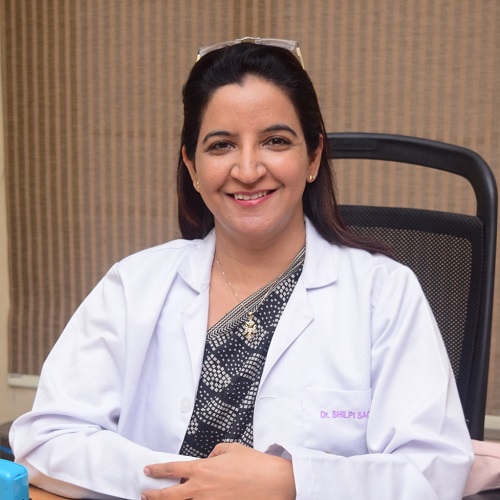
DR. SHILPI SACHDEV
MBBS, DNB, DMAS...
| Experience | : | 22 Years |
|---|---|---|
| Speciality | : | Obstetrics & Gynecol... | Location | : | Moti Nagar |
| Timings | : | Mon & Wed : 10:00 AM... |

DR. NAMRATA NAGENDRA
MBBS, MS- Obstetrics...
| Experience | : | 16 Years |
|---|---|---|
| Speciality | : | Obstetrics & Gynecol... | Location | : | Electronic City |
| Timings | : | Mon to Sat : 10:00 A... |

DR. MAYURI AHUJA
MBBS, DNB, DGO...
| Experience | : | 14 Years |
|---|---|---|
| Speciality | : | Obstetrics & Gynecol... | Location | : | Greater Noida |
| Timings | : | Mon to Sat : 04:00 P... |

DR. SNEHA J
MBBS, MD (AIIMS Delh...
| Experience | : | 14 Years |
|---|---|---|
| Speciality | : | Obstetrics & Gynecol... | Location | : | Rajajinagar |
| Timings | : | Mon to Sat : 9:00 AM... |

DR. APARNA JHA
MBBS, MS, DNB (OBGY)...
| Experience | : | 19 Years |
|---|---|---|
| Speciality | : | Obstetrics & Gynecol... | Location | : | Brookefield |
| Timings | : | Mon, Tue, Thu & Fri ... |

DR. GARIMA JAIN
MBBS, DNB, CIMP, CGC...
| Experience | : | 28 Years |
|---|---|---|
| Speciality | : | Obstetrics & Gynecol... | Location | : | Brookefield |
| Timings | : | Mon & Fri : 09:00 AM... |

DR. KANTI SAHU
MBBS, DGO, DNB (OBGY...
| Experience | : | 23 Years |
|---|---|---|
| Speciality | : | Obstetrics & Gynecol... | Location | : | Brookefield |
| Timings | : | Mon - Fri : 02:00 PM... |

DR. TEENA THOMAS
MBBS, MRCOG, PGDMNC,...
| Experience | : | 21 Years |
|---|---|---|
| Speciality | : | Obstetrics & Gynecol... | Location | : | Brookefield |
| Timings | : | Mon, Tue, Thu, Fri &... |

DR. KAVITHA V REDDY
MBBS, DGO...
| Experience | : | 19 Years |
|---|---|---|
| Speciality | : | Obstetrics & Gynecol... | Location | : | Brookefield |
| Timings | : | Mon to Sat : 09:00 A... |
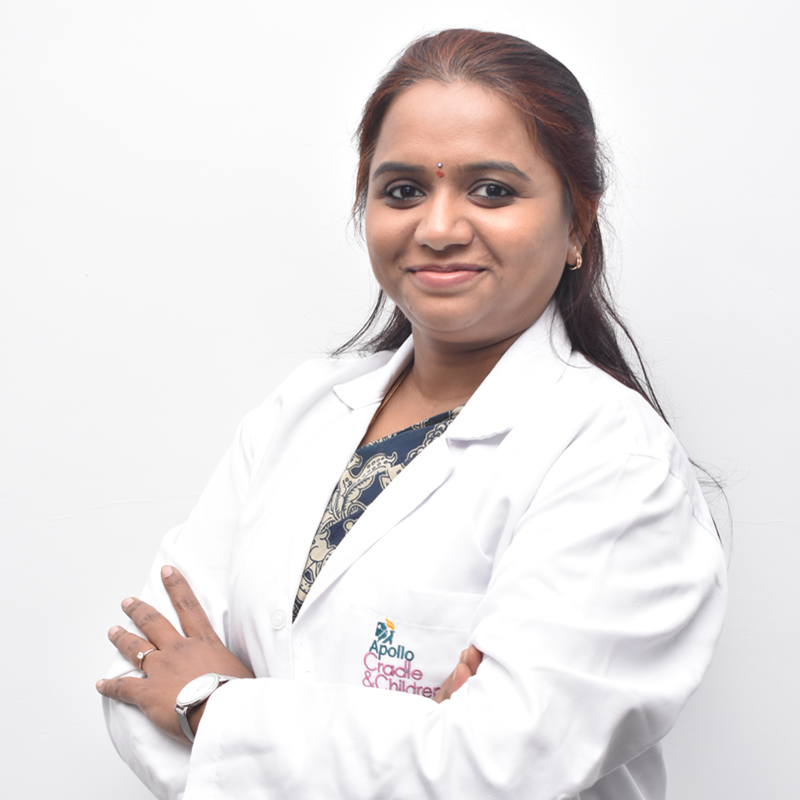
DR. TEJASWINI D
MBBS, DGO, DNB (OBG)...
| Experience | : | 11+ Years |
|---|---|---|
| Speciality | : | Obstetrics & Gynecol... | Location | : | Koramangala |
| Timings | : | On Call... |

DR. HEMAVATHI SRINIVASAN
MBBS, DNB (OBG), FFM...
| Experience | : | 22 Years |
|---|---|---|
| Speciality | : | Obstetrics & Gynecol... | Location | : | Koramangala |
| Timings | : | Mon - Sat : 05:00 PM... |

DR. PROMILA SINGH
MBBS, MS, MBA...
| Experience | : | 17 Years |
|---|---|---|
| Speciality | : | Obstetrics & Gynecol... | Location | : | Indirapuram |
| Timings | : | Mon to Sat : 10:00 A... |

DR. JEEVA P BAL
MBBS...
| Experience | : | 13+ Years |
|---|---|---|
| Speciality | : | Obstetrics & Gynecol... | Location | : | Koramangala |
| Timings | : | On call... |
DR. GARIMA MAAN
MBBS, MS, DNB...
| Experience | : | 8 Years |
|---|---|---|
| Speciality | : | Obstetrics & Gynecol... | Location | : | Indirapuram |
| Timings | : | Mon to Sat : 09:00 A... |

DR. HEMA SHARMA JHA
MBBS - Chaudhary Cha...
| Experience | : | 25 Years |
|---|---|---|
| Speciality | : | Obstetrics & Gynecol... | Location | : | Indirapuram |
| Timings | : | Mon Tue, Wed, Fri, S... |

DR. DHARAM DEVI VERMA
MBBS, MS...
| Experience | : | 19 Years |
|---|---|---|
| Speciality | : | Obstetrics & Gynecol... | Location | : | Indirapuram |
| Timings | : | Mon to Sat : 01:00 P... |

DR. SAHITI M
MBBS, MS - Obstetric...
| Experience | : | 10+ Years |
|---|---|---|
| Speciality | : | Obstetrics & Gynecol... | Location | : | Koramangala |
| Timings | : | Mon to Sat : On Call... |

DR. RITU TIWARI
MBBS, DNB...
| Experience | : | 25 Years |
|---|---|---|
| Speciality | : | Obstetrics & Gynecol... | Location | : | Indirapuram |
| Timings | : | Fri : 02:00 PM to 04... |

DR. KARAM CHANDRAJIT SINGH
MBBS, MS (OBGYN), AR...
| Experience | : | 12 Years |
|---|---|---|
| Speciality | : | Obstetrics & Gynecol... | Location | : | Moti Nagar |
| Timings | : | Tue & Fri : 05:00 PM... |

DR. DHIVYAMBIGAI RAJENDRAN
MBBS., DNB(OG)., FMA...
| Experience | : | 15+ Years |
|---|---|---|
| Speciality | : | Obstetrics & Gynecol... | Location | : | Karapakkam |
| Timings | : | Mon - Sat : 11:00 ... |

DR. RAJSRI J SHANKAR
MBBS, MRCOg (UK)...
| Experience | : | 30+ Years |
|---|---|---|
| Speciality | : | Obstetrics & Gynecol... | Location | : | Karapakkam |
| Timings | : | Mon - Sat : 11:30 AM... |

DR. SINDHU BHARGAVI
MBBS, DNB(OG), MRCOG...
| Experience | : | 20+ Years |
|---|---|---|
| Speciality | : | Obstetrics & Gynecol... | Location | : | Karapakkam |
| Timings | : | Mon - Sat : 11:00 AM... |

DR. JANANI IYER
MBBS, MD, MRCOG(UK),...
| Experience | : | 25+ Years |
|---|---|---|
| Speciality | : | Infertility Speciali... | Location | : | Karapakkam |
| Timings | : | Mon, Wed & Fri : 10:... |
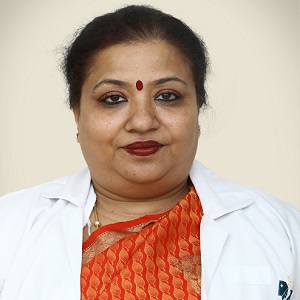
DR. AMUDHA HARI
MBBS, DGO, PHD, Dip ...
| Experience | : | 35+ Years |
|---|---|---|
| Speciality | : | Obstetrics & Gynecol... | Location | : | Karapakkam |
| Timings | : | Mon to Sat : 10:30 A... |

DR. KARTHIGA DEVI
MBBS, MS(OG)...
| Experience | : | 20+ Years |
|---|---|---|
| Speciality | : | Obstetrics & Gynecol... | Location | : | Karapakkam |
| Timings | : | Mon - Sat : 11:00 AM... |

DR. NITHIYAA JEYAKUMAR
MBBS, DGO, DNB(OG), ...
| Experience | : | 18+ Years |
|---|---|---|
| Speciality | : | Obstetrics & Gynecol... | Location | : | Karapakkam |
| Timings | : | Mon - Sat : 12:30 PM... |

DR. SOWMYA RAGHAVAN
MBBS, MD, DGO, DNB(O...
| Experience | : | 30+ Years |
|---|---|---|
| Speciality | : | Obstetrics & Gynecol... | Location | : | Karapakkam |
| Timings | : | Mon - Sat : 12:00 PM... |

DR. PARIMALALM RAMANATHAN
MBBS, MD(OG), DNB, M...
| Experience | : | 25+ Years |
|---|---|---|
| Speciality | : | Obstetrics & Gynecol... | Location | : | Karapakkam |
| Timings | : | Mon to Sat : 4:00 PM... |

DR. NANDEESH REDDY
MBBS, MS - Obstetric...
| Experience | : | 4+ Years |
|---|---|---|
| Speciality | : | Obstetrics & Gynecol... | Location | : | HSR layout 2nd Sector |
| Timings | : | Mon, Wed, Fri & Sat ... |

DR. SHAILZA VARDHAN
MBBS - S.N Medical C...
| Experience | : | 11 Years |
|---|---|---|
| Speciality | : | Obstetrics & Gynecol... | Location | : | Greater Noida |
| Timings | : | Mon to Sat : 4:00 PM... |

DR. PROF. SADHNA KALA
MBBS, MS, FICOG, FAC...
| Experience | : | 45 Years |
|---|---|---|
| Speciality | : | Obstetrics & Gynecol... | Location | : | Chirag Enclave |
| Timings | : | Mon to Sat : 11:00 A... |

DR. YUVAKSHI JUNEJA
MBBS, MD...
| Experience | : | 38 Years |
|---|---|---|
| Speciality | : | Obstetrics & Gynecol... | Location | : | Chirag Enclave |
| Timings | : | Tuey & Fri : 4:00 PM... |

DR. GEETA CHADHA
MBBS, MD...
| Experience | : | 41 Years |
|---|---|---|
| Speciality | : | Obstetrics & Gynecol... | Location | : | Chirag Enclave |
| Timings | : | Mon - Sat : 10:00 AM... |

DR. RANJANA SHARMA
MS, MRCOG (UK), FROG...
| Experience | : | 36 Years |
|---|---|---|
| Speciality | : | Obstetrics & Gynecol... | Location | : | Chirag Enclave |
| Timings | : | Mon - Fri : 10:00 AM... |
.webp)
DR. REENA KHANDELWAL
MBBS, MD...
| Experience | : | 46 Years |
|---|---|---|
| Speciality | : | Obstetrics & Gynecol... | Location | : | Chirag Enclave |
| Timings | : | Wed & Fri - 12:00 PM... |

DR. POOJA CHOUDHARY
MBBS, MD...
| Experience | : | 20 Years |
|---|---|---|
| Speciality | : | Obstetrics & Gynecol... | Location | : | Chirag Enclave |
| Timings | : | Mon to Sat : 11:00 A... |

DR. TEJASHRI SHROTRI
MBBS, MS, MRCOG...
| Experience | : | 18 Years |
|---|---|---|
| Speciality | : | Obstetrics & Gynecol... | Location | : | Chirag Enclave |
| Timings | : | Mon - Sat : 09:00 AM... |

DR. SANJIDA YASMIN
MBBS, DGO, DNB...
| Experience | : | 12 Years |
|---|---|---|
| Speciality | : | Obstetrics & Gynecol... | Location | : | Chirag Enclave |
| Timings | : | Mon - Sat : 04:00 PM... |

DR. VAISHALI SHARMA
MBBS, MD...
| Experience | : | 20 Years |
|---|---|---|
| Speciality | : | Obstetrics & Gynecol... | Location | : | Chirag Enclave |
| Timings | : | Tue & Sat : 12:00 PM... |

DR. CHARANJIT KAUR
MBBS, MS, DNB...
| Experience | : | 30 Years |
|---|---|---|
| Speciality | : | Obstetrics & Gynecol... | Location | : | Chirag Enclave |
| Timings | : | WED/FRI - 11:00AM To... |
.webp)
DR. NEETA MISHRA
MBBS , MD...
| Experience | : | 20 Years |
|---|---|---|
| Speciality | : | Obstetrics & Gynecol... | Location | : | Chirag Enclave |
| Timings | : | Mon, Wed & Sat - 10:... |

DR. JAYA AGARWAL
MBBS, DGO, DNB, DGE...
| Experience | : | 17 years |
|---|---|---|
| Speciality | : | Obstetrics & Gynecol... | Location | : | Chirag Enclave |
| Timings | : | Mon - Sat : 05:00 PM... |
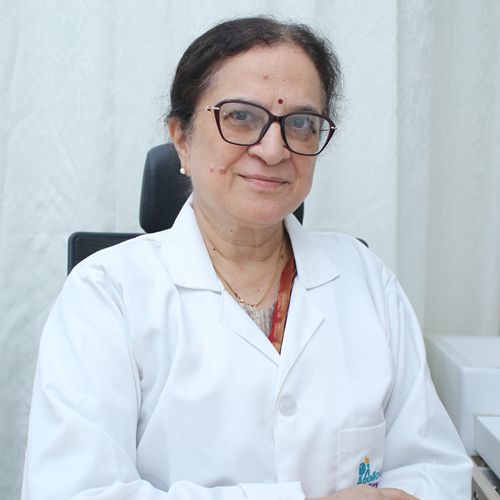
DR. POONAM MISRA
MBBS, DGO, MRCOG...
| Experience | : | 40 Years |
|---|---|---|
| Speciality | : | Obstetrics & Gynecol... | Location | : | Chirag Enclave |
| Timings | : | Mon - Sat : 4:00 PM ... |
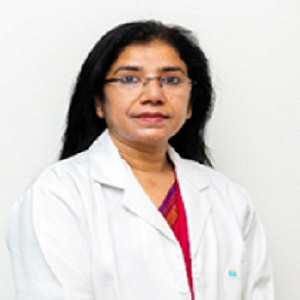
DR. SHALINI SINGH
MBBS, MS, FMAS...
| Experience | : | 20 Years |
|---|---|---|
| Speciality | : | Obstetrics & Gynecol... | Location | : | Chirag Enclave |
| Timings | : | Mon - Sat : 9:00 AM ... |

DR. POONAM TARA
MBBS, MD, MRCOG PART...
| Experience | : | 25 Years |
|---|---|---|
| Speciality | : | Obstetrics & Gynecol... | Location | : | Chirag Enclave |
| Timings | : | Tue, Wed & Fri: 09:0... |

DR. MEENAKSHI T. SAHU
MBBS, MD, DNB, MRCOG...
| Experience | : | 20 Years |
|---|---|---|
| Speciality | : | Obstetrics & Gynecol... | Location | : | Chirag Enclave |
| Timings | : | Mon - Sat : 6:00 PM ... |

DR. MANEESHA SINGH
MBBS, DGO...
| Experience | : | 15 Years |
|---|---|---|
| Speciality | : | Obstetrics & Gynecol... | Location | : | Indirapuram |
| Timings | : | Mon to Sat : 9:00 AM... |
DR. RUSHDA RIAZ
MBBS, DGO, F. MAS, D...
| Experience | : | 13 Years |
|---|---|---|
| Speciality | : | Obstetrics & Gynecol... | Location | : | Indirapuram |
| Timings | : | Mon,Wed & Sat : 09:0... |

DR. SEEMA SHARMA
MBBS MD (OBGYN)...
| Experience | : | 24 Years |
|---|---|---|
| Speciality | : | Obstetrics & Gynecol... | Location | : | Abadi Court Road |
| Timings | : | Mon to Sat : 10:00 A... |
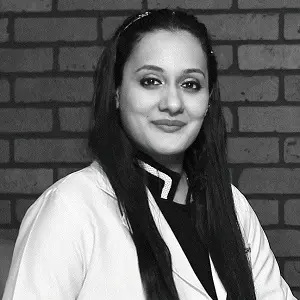
DR. RUCHI TANDON
MBBS, MS...
| Experience | : | 15+ Years |
|---|---|---|
| Speciality | : | Laparoscopic Surgeon... | Location | : | Chirag Enclave |
| Timings | : | Mon - Sat : 10:00 AM... |

DR. SWETHA CHANDRASEKAR
MBBS, MS(OG),FMAS,Fe...
| Experience | : | 14+ Years |
|---|---|---|
| Speciality | : | Obstetrics & Gynecol... | Location | : | Karapakkam |
| Timings | : | Mon to Sat : 11:00 A... |

DR. ANSHU RAINA
MBBS, MD...
| Experience | : | 18 Years |
|---|---|---|
| Speciality | : | Obstetrics & Gynecol... | Location | : | Greater Noida |
| Timings | : | Mon - Sat : 9:00 AM ... |
DR. RASHMI REDDY
MBBS, MS...
| Experience | : | 8 Years |
|---|---|---|
| Speciality | : | Obstetrics & Gynecol... | Location | : | Electronic City |
| Timings | : | Mon - Sat : 4:00 PM ... |

DR. MAHITA REDDY A
MBBS, MD (OBS & GYN)...
| Experience | : | 30+ Years |
|---|---|---|
| Speciality | : | Obstetrics & Gynecol... | Location | : | Jubilee Hills |
| Timings | : | Mon, Wed, Fri & Sat ... |

DR. SUSEELA VAVILALA
MBBS, DGO, DNB (Obst...
| Experience | : | 26 Years |
|---|---|---|
| Speciality | : | Fetal Medicine/Obste... | Location | : | Jubilee Hills |
| Timings | : | Wed : 12:00 PM to 3:... |

DR. SUSEELA VAVILALA
MBBS, DGO, DNB (Obst...
| Experience | : | 26 Years |
|---|---|---|
| Speciality | : | Fetal Medicine/Obste... | Location | : | Kondapur |
| Timings | : | Mon, Thur & Fri : 8:... |

DR. ANU JOESPH
MBBS, DNB...
| Experience | : | 18+ Years |
|---|---|---|
| Speciality | : | Fetal Medicine/Obste... | Location | : | Electronic City |
| Timings | : | Mon to Sat : 4:00 PM... |
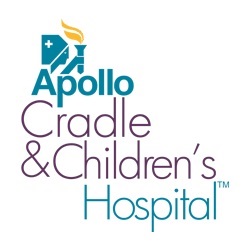
DR. AVULA LAKSHMI NETHRA
MBBS, MD (OBG)...
| Experience | : | 4+ Years |
|---|---|---|
| Speciality | : | Obstetrics & Gynecol... | Location | : | Varthur Clinic |
| Timings | : | Mon to Sat : 03:00 P... |

DR. VIJAYA MANOHAR
MBBS, MD (OBG)...
| Experience | : | 36 Years |
|---|---|---|
| Speciality | : | Obstetrics & Gynecol... | Location | : | Koramangala |
| Timings | : | Mon to Sat : 10:30 A... |

DR. POORNIMA RAMAKRISHNA
MBBS, MS (Obs& Gyn) ...
| Experience | : | 17 Years |
|---|---|---|
| Speciality | : | Obstetrics & Gynecol... | Location | : | Koramangala |
| Timings | : | Mon to Fri : 3:00 PM... |

DR. PRAJUAL HEGDE S
MBBS, MD (OBG)...
| Experience | : | 23 Years |
|---|---|---|
| Speciality | : | Obstetrics & Gynecol... | Location | : | Koramangala |
| Timings | : | Mon to Fri : 2:00 PM... |

DR. NAGARATHNA DS
MBBS, DGO...
| Experience | : | 28 Years |
|---|---|---|
| Speciality | : | Obstetrics & Gynecol... | Location | : | Koramangala |
| Timings | : | Mon to Sat : 12:00 P... |

DR. KRISHNA SHAW
MBBS, DGO...
| Experience | : | 20 Years |
|---|---|---|
| Speciality | : | Obstetrics & Gynecol... | Location | : | Koramangala |
| Timings | : | Sun : 3:30 PM to 5:0... |

DR. THEJASWINI PATIL
MBBS,MD,FEDM,Endocri...
| Experience | : | 20 Years |
|---|---|---|
| Speciality | : | Obstetrics & Gynecol... | Location | : | Koramangala |
| Timings | : | Mon, Wed & Fri : 2:0... |
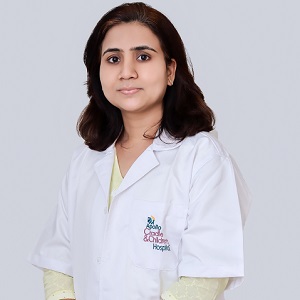
DR. NIVEDITA JHA
MBBS (KGMC, Lucknow)...
| Experience | : | 12 Years |
|---|---|---|
| Speciality | : | Obstetrics & Gynecol... | Location | : | Koramangala |
| Timings | : | Mon to Sat : 6:30 PM... |

DR. SHILPA APTE
MBBS, DGO...
| Experience | : | 21 Years |
|---|---|---|
| Speciality | : | Obstetrics & Gynecol... | Location | : | Koramangala |
| Timings | : | Mon, Wed, Fri & Sat ... |

DR. ARTI YADAV
MBBS, MS (Obs& Gynec...
| Experience | : | 14 Years |
|---|---|---|
| Speciality | : | Obstetrics & Gynecol... | Location | : | Greater Noida |
| Timings | : | Mon - Sat : 10:00 AM... |

DR. SUMAN KHARBANDA
MBBS, MS - Obstetric...
| Experience | : | 36 Years |
|---|---|---|
| Speciality | : | Obstetrics & Gynecol... | Location | : | Moti Nagar |
| Timings | : | Mon/Tue/Thur & Fri :... |
